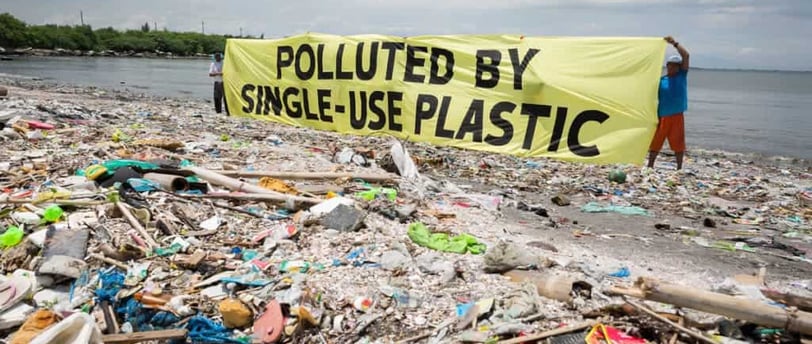Why should you reduce your plastic consumption and how?
ARTICLE


By now, We have all heard about the plastic problem or what the UN calls ‘a planetary crisis’ and you are probably thinking to yourself ‘Oh no why do I have to listen to this lecture about plastic again’ but do YOU know the reasons why we should take serious actions to reduce our plastic waste?
Even though Plastic only began to be widely used after World War II, already the mass of all plastic ever produced is twice as high as the overall mass of all land and marine animals combined. It is also believed that by 2050 every seabird in the world will be eating plastic. But why does this concern us?
When we fish for sea animals, we might catch the ones that have digested plastic therefore the microplastics get into our food. There has been a widespread concern about microplastics landing in our food chain as this can lead to health problems, but this is still being researched.
One solution to the mass scale of plastic in oceans is just to remove it with futuristic technologies. However, if we just tackle the plastic waste problem at its roots and just avoid as much plastic consumption as possible. This seems like a more useful solution. By doing the little things like using reusable straws, water bottles or cutlery, join plastic-free July this year which is a challenge to use as little plastic as possible for a month or avoid products that contain plastic or microplastics such as toothbrushes and opt for bamboo toothbrushes instead. It is these little things that add together to make a great difference.
After years of ignoring this urgent problem, now is the perfect time to make a difference and it's not just one person’s problem it is all our problem.
It is crucial to reduce plastic consumption because of its harmful effects on the environment and human health. Since World War II, the amount of plastic produced has exceeded that of all land and marine animals combined. By 2050, it is estimated that every seabird will have ingested plastic, emphasizing the urgency of the situation.
The impact also extends to human health. Microplastics, consumed by marine creatures, can enter the food chain, potentially causing health issues. Although research is ongoing, the presence of microplastics in our food chain is worrisome.
Dealing with the plastic crisis requires various approaches. While advanced technologies for cleaning up oceanic plastic exist, reducing plastic at the source is more effective. Simple actions like using reusable straws, water bottles, and utensils, participating in initiatives like Plastic Free July, and choosing plastic-free alternatives like bamboo toothbrushes all help in addressing the problem.
Despite past negligence, now is the perfect time for collective action. Recognizing that plastic pollution is a shared responsibility emphasizes the need for united efforts towards sustainable practices.
Source: Greenpeace
